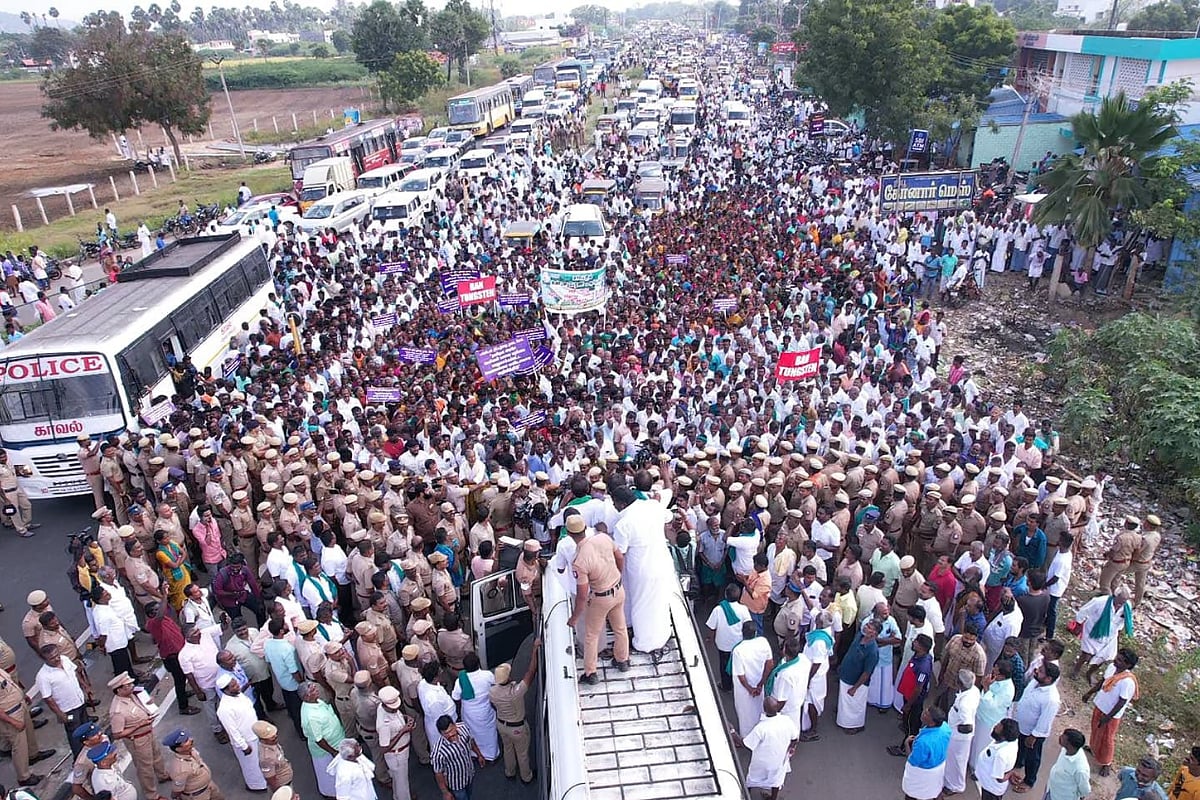 |
|
The recent cancellation of the Nayakkarpatti tungsten mineral block auction in Tamil Nadu exemplifies a significant victory for community activism and environmental protection. The decision, announced by the Union government after sustained protests by villagers, highlights the increasing power of grassroots movements in influencing national policy. The initial allocation of mining rights to Hindustan Zinc Limited in November 2024 sparked immediate and widespread opposition. This opposition stemmed from the profound ecological and cultural significance of the area, encompassing a biodiversity heritage site and numerous historical landmarks. The site, declared a biodiversity heritage site in 2022, harbors a rich tapestry of flora and fauna, many species rare and endangered. Beyond the biodiversity concerns, the proposed mining operation threatened to irrevocably damage several cave temples, Jain temples, and ancient Tamil-Brahmi inscriptions – precious vestiges of Tamil history and culture. These sites hold immense cultural and historical value, representing centuries of heritage and tradition.
The protests, culminating in a large-scale demonstration on January 7th, involved thousands of villagers and farmers marching from Melur to Tallakulam, despite lacking official police permission. This act of civil disobedience underscored the community's unwavering determination to protect their heritage and environment. The strength and resolve of these protests were further amplified by a resolution passed by the Legislative Assembly on December 9th, urging the Union government to reconsider the mining rights allocation. The involvement of the BJP state president, K Annamalai, who also voiced concerns to the central government, highlights the bipartisan nature of the opposition to the mining project, transcending party lines. The government’s ultimate response, as evidenced by the meeting between Union Minister G Kishan Reddy and Ambalakarars on January 22nd, showcases a willingness to engage with and address the concerns of the local community.
The government’s decision to annul the auction, as stated in their press release, emphasizes the importance given to the biodiversity heritage site and the government's commitment to protecting traditional rights. This decision marks a crucial shift towards prioritizing environmental protection and community interests over potentially lucrative mining ventures. It sets a valuable precedent for future mining projects, demonstrating the efficacy of collective action in influencing policy. However, the case also highlights the need for robust environmental impact assessments and meaningful consultations with local communities before granting mining licenses. Future mining projects must be carefully evaluated, ensuring that the potential environmental and cultural costs are thoroughly assessed and mitigated before any decisions are made. Transparency and community participation in the decision-making process are paramount to prevent similar conflicts in the future. The Nayakkarpatti incident serves as a stark reminder of the critical need to balance economic development with the preservation of our environment and cultural heritage.
The success of the Nayakkarpatti protests offers a beacon of hope for environmental and community activists across India. It underlines the importance of sustained and organized community action in safeguarding precious natural and cultural resources. The case underscores the urgent need for stricter regulations and oversight of mining activities to prevent similar situations from arising. Government agencies and corporations must actively prioritize environmental sustainability and community engagement in their operations, recognizing the vital role local communities play in protecting their own land and heritage. This case also strengthens the argument for empowering local communities to have a greater say in decisions impacting their livelihoods and environment. It's a testament to the power of collective action and a powerful reminder of the importance of respecting the voice and rights of indigenous and local communities in protecting their environment and heritage. This victory necessitates further reform and increased transparency in the allocation of mining rights in India.
Source: Union govt cancels decision to auction mining rights in Tamil Nadu village after protests
